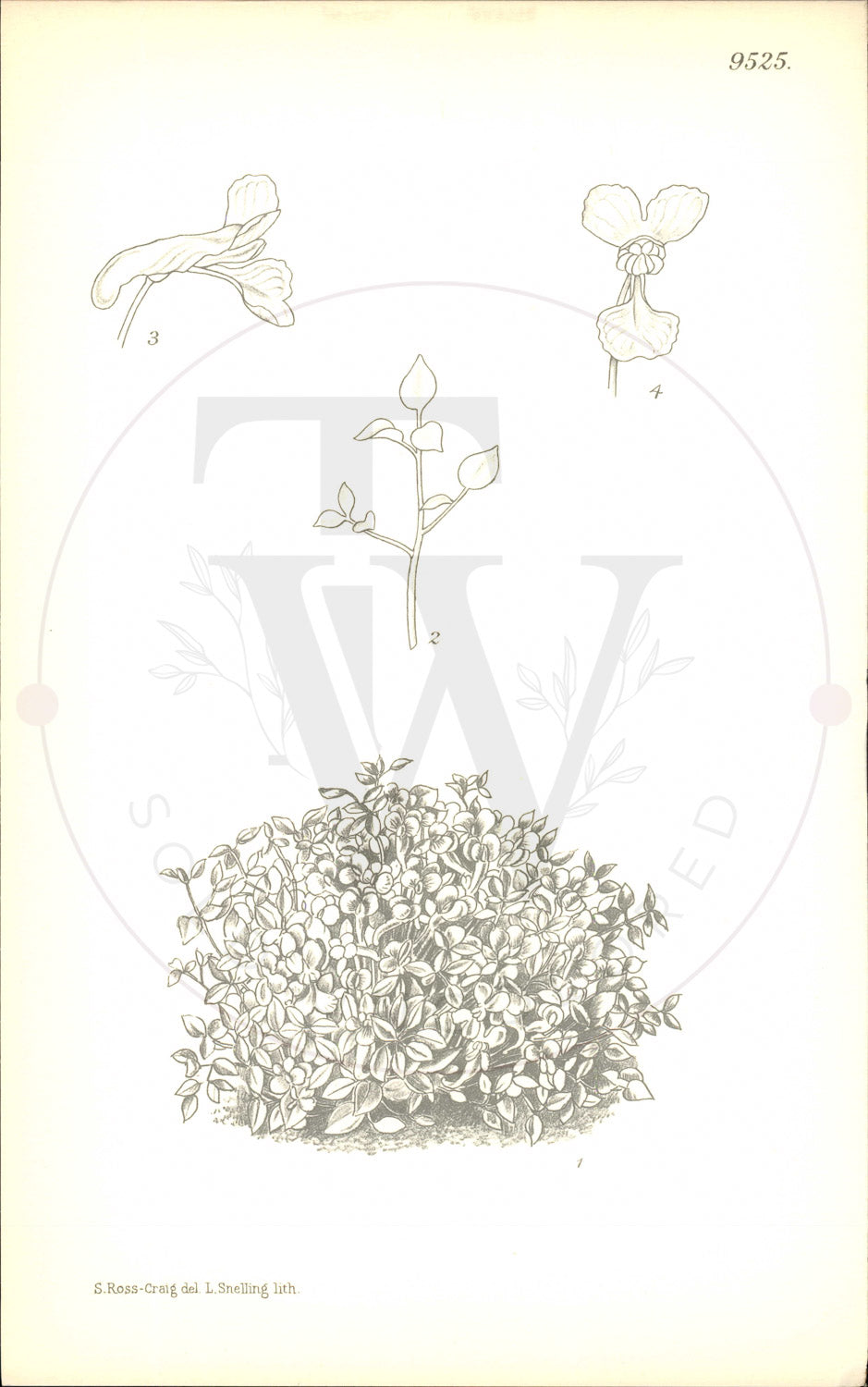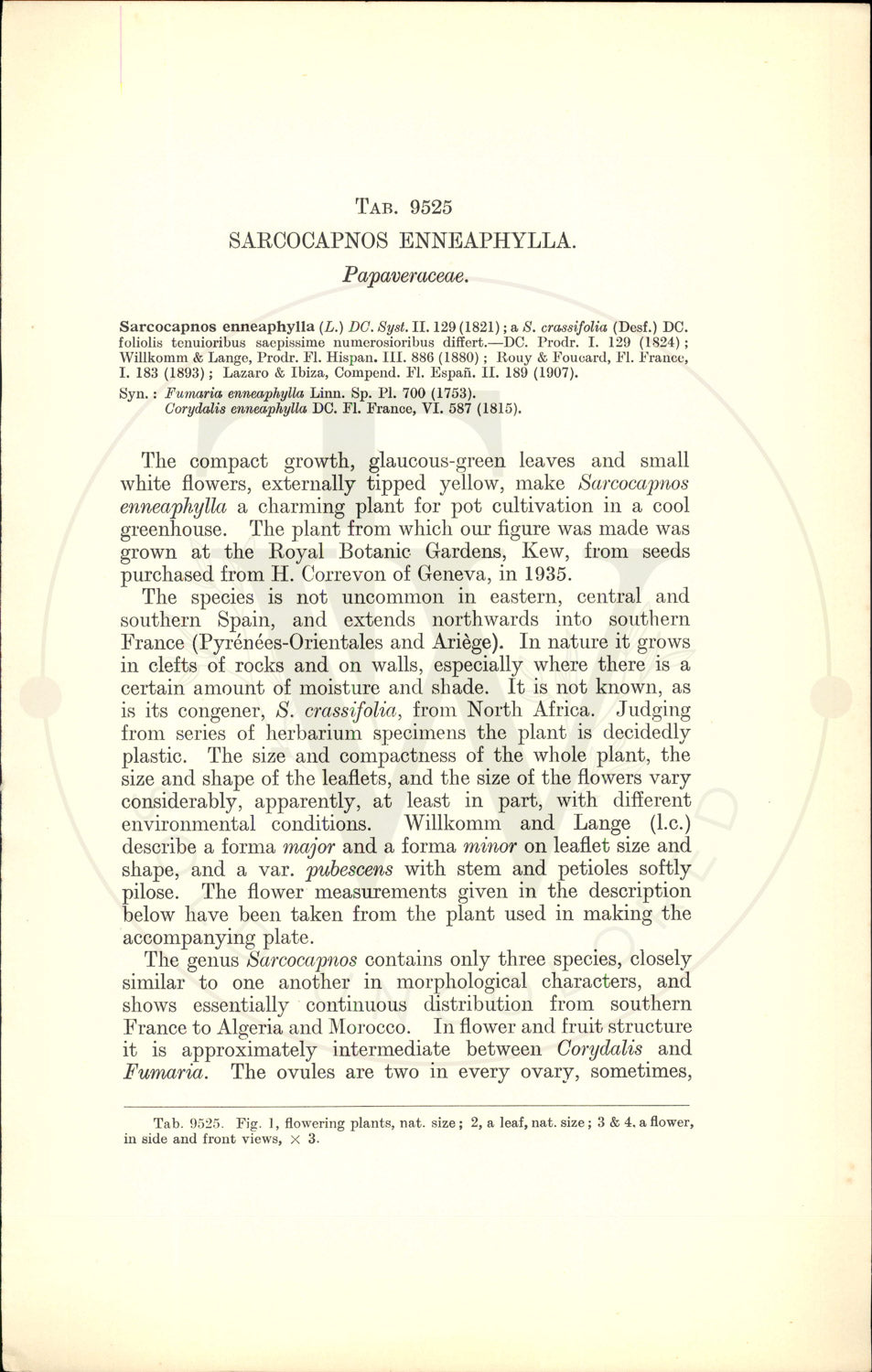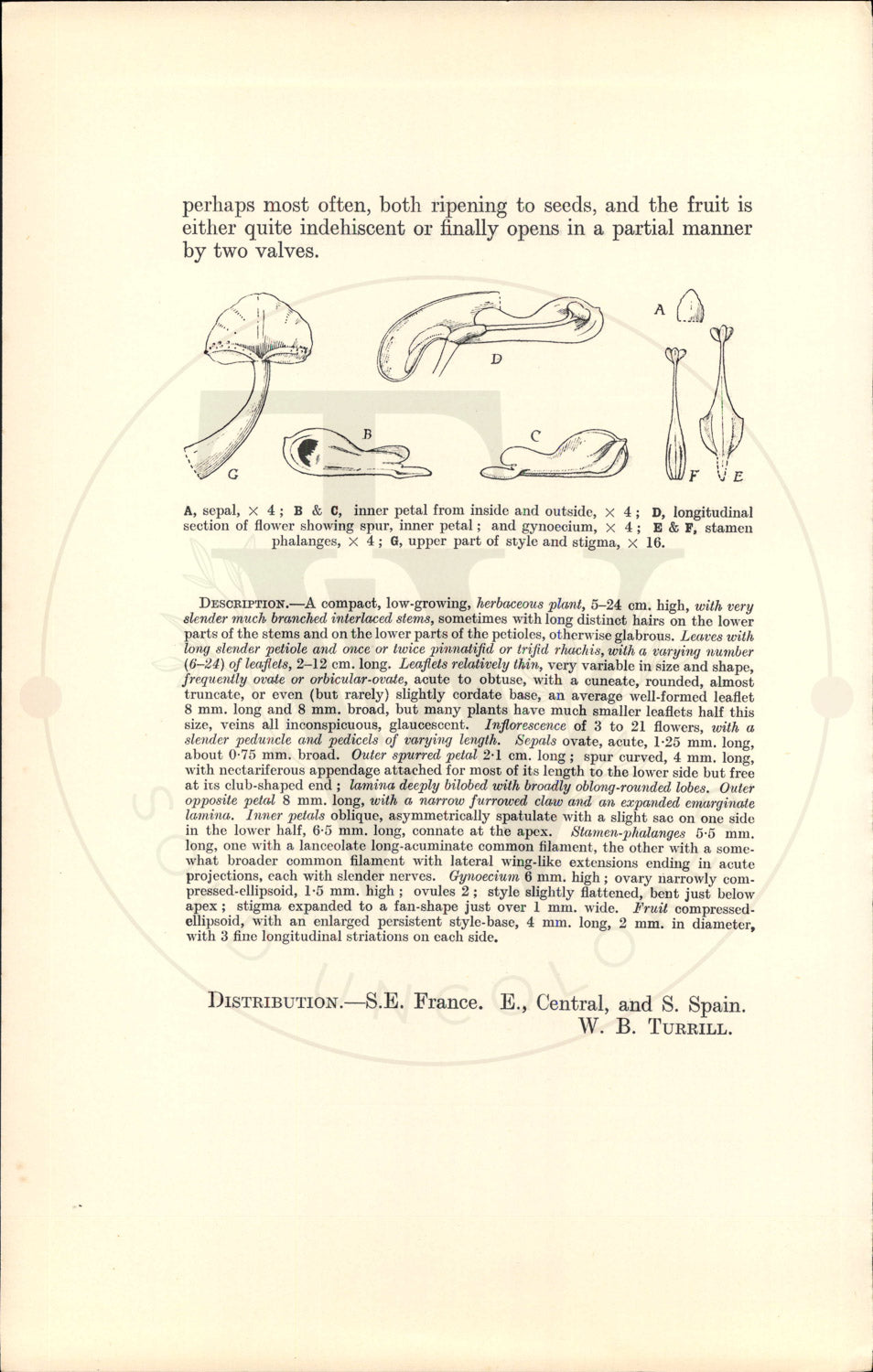Curtis Botanical Magazine
Plate 9525 - Sarcocapnos enneaphylla
Plate 9525 - Sarcocapnos enneaphylla
Couldn't load pickup availability
Curtis's Botanical Magazine - Plate 9525
Sarcocapnos enneaphylla
Family: Papaveraceae • Native Region: Spain • Publication Date: January 1st, 1934
Distribution: from southern • Tab Author: W. B. TURRILL
Botanical Description
Enneaphylla a charming plant for pot cultivation in a cool greenhouse. The plant from which our figure was made was grown at the Royal Botanic Gardens, Kew, from seeds purchased from H. Correvon of Geneva, in 1935. The species is not uncommon in eastern, central and southern Spain, and extends northwards into southern France (Pyr n es-Orientales and Ari ge). In nature it grows in clefts of rocks and on walls, especially where there is a certain amount of moisture and shade. It is not known, as is its congener, S. crassifolia, from North Africa. Judging from series of herbarium specimens the plant is decidedly plastic. The size and compactness of the whole plant, the size and shape of the leaflets, and the size of the flowers vary considerably, apparently, at least in part, with different environmental conditions. Willkomm and Lange (l.c.) describe a forma major and a forma minor on leaflet size and shape, and a var. pubescens with stem and petioles softly pilose. The flower measurements given in the description below have been taken from the plant used in making the accompanying plate. The genus Sarcocapnos contains only three species, closely similar to one another in morphological characters, and shows essentially continuous distribution from southern France to Algeria and Morocco. In flower and fruit structure it is approximately intermediate between Corydalis and Fumaria. The ovules are two in every ovary, sometimes,.
Synonyms
Fumaria enneaphylla Linn. Sp. Pl. 700 (1753).
About This Print
Original black and white uncolored botanical print from Curtis's Botanical Magazine (established 1787). This 9000s series print is from unissued publisher stock, never hand-colored, representing the authentic plate as it appeared in the magazine. Edited by Sir Arthur William Hill for The Royal Horticultural Society, London.
Share







